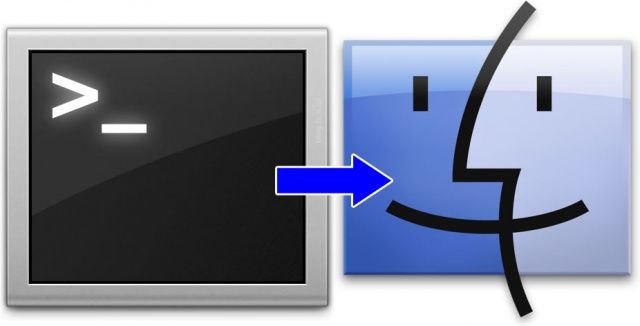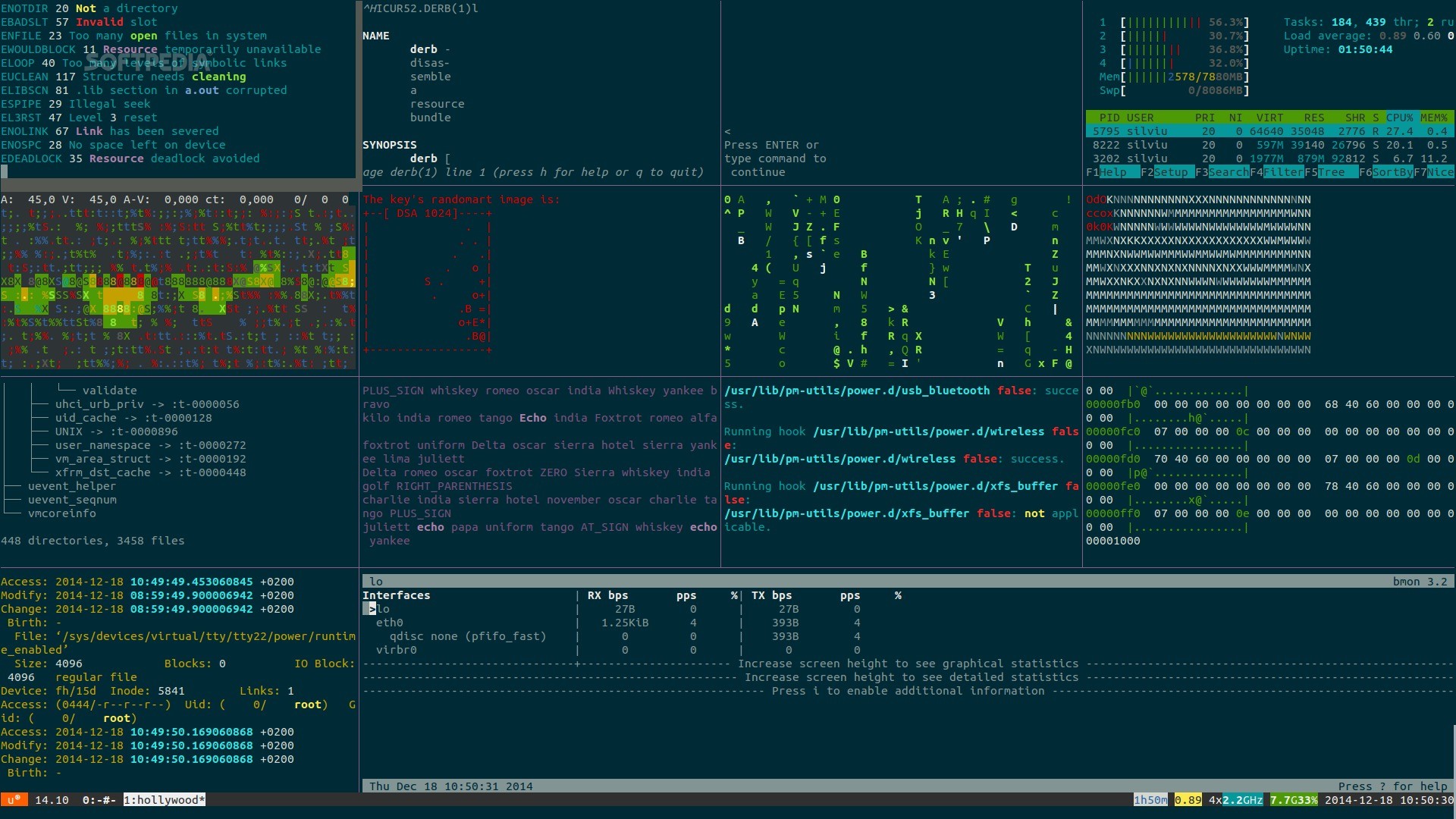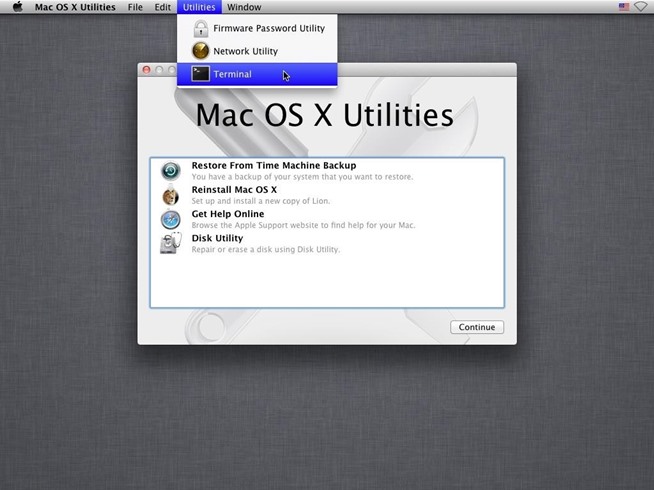Mac takes ages to wake up. A turned on Mac goes into the standby mode when you don’t use it for a while. It saves the system’s energy. However, many users report that when they try to wake it back up, it takes a lot of time, putting them in confusion why is my Mac so slow. Fix: Go for this Terminal hack. The Terminal can help you configure your Mac exactly how you want it and provide access to features that just don't have any graphical interface to change. There are many options that are perfectly safe to use but to avoid overwhelming the user, they're hidden away, only to be found by power users wanting to make the change. Speed up your Dock with this Terminal Hack in macOS Sierra has built in proxy and VPN for 100% safety and anonymity. Our tool is 100% safe and secure, w us only open source technology and every one can edit and see our code, all instructions ar included after installation. Mastering Terminal To Hack Your Mac Feature By Rob LeFebvre. 12:11 pm, February 9, 2013 Terminal app can be daunting at first, but it’s really the best way to hack into your Mac’s configurations.
- Is My Mac Hacked
- Terminal Hacks For Mac Os X
- Mac Terminal Dock Hacks
- Terminal Hacked Machine
- Mac Computer Hacked
- Best Mac Terminal Hacks
- Terminal Codes For Mac

Terminal Hacker 1.0 for Mac can be downloaded from our website for free. This free software for Mac OS X was originally developed by LordLoej. Our built-in antivirus scanned this Mac download and rated it as virus free. The program lies within Games, more precisely General.
You turn on your MacBook and feel that something is wrong: some files have disappeared, or new files were added. You wonder if someone has been watching your computer.
So, how to tell if someone is remotely accessing your MacBook? You need to check your logs, verify that no new users were created, make sure that remote login, screen sharing and remote management are disabled, and no spyware is running on your computer.

First things first. If you suspect that someone is controlling your laptop and if there is a chance that they watching you thru the webcam immediately apply a cover on laptop’s webcam. You can find my favorite webcam covers here.
What is remote access and how is it configured on MacBooks?
There are three ways to access MacOS remotely: allow remote logins from another computer, enable Screen Sharing or allow access by using Remote Desktop. Both ways are legitimate, but if you don’t remember doing any of them you need to know how to turn on and off those possibilities.
Is My Mac Hacked
Remote login to MacOS
Computers that run MacOS as an operating system can log in to your Mac using Secure Shell (SSH). Steps to enable remote login are the following:
- Go to System Preferences. You can get there by clicking on the apple icon on the left of the top bar. After you clicked on apple icon you will see a drop-down menu where you should click on System Preferences menu item.
- Find Sharing folder and double click. Click on Remote Login checkbox on the left.
- Now you have the option to allow access either for all user or only specific users.
Once Remote Login is enabled then users with access can use SSH to log in and browse your computer’s contents.
Access to Mac screen using Screen Sharing
If you need help from IT to make changes on your MacBook or maybe you are collaborating on a project and want to share your screen you can enable Screen Sharing. Steps to enable as follows:
- Go to System Preferences.
- Find Sharing folder and double click. Click on Screen Sharing checkbox on the left.
- Allow access either for all user or only specific users.
Now on another Mac (from which you want to access to your Mac) start Screen Sharing app. You can start it by clicking Command and Space buttons. In a popup form type Sharing and hit Enter. Type your computer name. In my case, I had to type in “dev-pros-MacBook-Pro.local”.
A new window will pop up with the shared screen of another computer. Now you can control the screen.
Remote Desktop with Remote Management
Finally, it is possible to login to a computer with MacOS by enabling Remote Desktop. Steps to enable as follows:
- Go to System Preferences.
- Find Sharing folder and double click. Click on Remote Management check box on the left.
- Allow access either for all user or only specific users.
- There will be different Sharing options where you can fine-tune the type of access to allow: observe, change settings, delete, copy and even restart the computer.
Now you can access this Mac from Apple Remote Desktop – it’s an application you can buy from Apple Store and at the time of writing it’s cost was $79.99.
If your Mac is being monitored, it will show this image (two rectangles) in the top right-hand corner near your computer time:
When that symbol appears, you will be able to tell if you are being monitored. You can also disconnect the viewer by clicking on Disconnect option:
You can also click on “Open Sharing Preferences…” which will open Sharing folder in System Preferences.
Since the question you had was if someone remotely accessing your computer then the chances are that you don’t need any of sharing capabilities mentioned above.
In this case, check all options on Sharing folder under System Preferences to make sure that nobody is allowed to access it and turn off (uncheck) all options.
Terminal Hacks For Mac Os X
Verify if new users were created
As we’ve seen already remote login or sharing options require assigning access roles to the local users. If your system was hacked it is very likely that the hacker has added a new user to access it. To find out all users in MacOS perform the following steps:
- Start Terminal app by either going to Applications and then Utilities folder or clicking Command and Space and typing Terminal in the popup window.
- In the Terminal window type:
On my laptop it listed dev1, nobody, root and daemon.
If you see the accounts, you do not recognize then they probably have been created by a hacker.
In order to find when the user account was used to log in last time type the following command into the Terminal:
last
For each account, MacOS will list the times and dates of logins. If the login to any of the accounts happened at an abnormal time, it is possible that a hacker used a legitimate account to log in.
Check the logs
It may be useful to check the system logs for any possible access issues.
In order to find a system log, click on Go option in the top menu or simultaneously click Shift, Command and G. In the “Go to Folder” popup type: /var/log and hit Enter.
Now find system.log file and scan for word sharing. For instance, I found following screen sharing log entries:
These were log entries when someone logged in to my system remotely:
Check for spyware
If you are still suspecting that spyware is running on your machine you can use a third party application like Little Snitch which monitors applications, preventing or permitting them to connect to attached networks through advanced rules. Setting up the rules for Little Snitch, however, could be complicated.
One of the common spyware applications is a keystroke logger or keylogger. Keyloggers used to be apps that record the letters you type on the keyboard, but they significantly in last years. Suffice to day that keyloggers can take screenshots every 30 seconds or even track your chat activity, including the messages sent to you.
I believe that keyloggers are much greater security threat because they are easier to install and the powerful features they offer. Check my article about keyloggers here: How to know if my Mac has a keylogger
Security Best Practices
1.Change passwords regularly
One thing you should immediately if you are suspecting that someone is logging to your system is to change your password. And the password should be complex enough so that other people wouldn’t be able to guess it. This means avoiding using things like birthdate, first or last name or relatives, house or apartment number, etc. As a rule of thumb the password must be long enough (8 – 32 characters) and include at least 3 of the following character types:
- Uppercase letter (A-Z)
- Lowercase letter (a-z)
- Digit number (0-9)
- Special characters such as ~!@#$%^&*
2.Enable Security Updates by clicking on “Automatically keep my Mac up to date” in Software Update folder in System Preferences.
Mac Terminal Dock Hacks
3. Install Antivirus. I received a lot of emails where people described suspicious activity on their Macs. I found that in about 60-70% cases, the culprit was malwareand not someone breaking into the computer. It’s a myth that Macs don’t get viruses. If you need proof check the next article I wrote after testing 12 antivirus programs after injecting 117 malware samples on my Mac:
Last Updated on
Ad Blocker Detected
Our website is made possible by displaying online advertisements to our visitors. Please consider supporting us by disabling your ad blocker.
If you’re thinking hackers did not hack your computer machine because you’re a small fly nobody wants to hack you. That’s your biggest mistake hackers always try to increase IP database through hacking computer.
When hackers, hack any website or server they generally do it by opening that particular site to millions of IP address and hence the server in cash. So you’ve to check if you’re being targeted by the hacker or if on your mac there is any backdoor from which you’re monitored.
If you questioning your self “How to tell If your mac has been remotely accessed” by hackers. If you’ve felt your computer has been hacked you can easily check it and prevent using simple tools and software such as installing anti-virus on your Mac.
The answer is simple, there some ways from which you can easily determine your computer is hacked.
Must Watch This Video To Know Why Your Mac Has Been Hack
Terminal Hacked Machine
1 # Can I Tell If My Mac Has Been Hacked
Mac Computer Hacked
To determine if your mac has been already hacked by hackers you have to know if things. First of all, you've to spot some sign of possible hacking.
Best Mac Terminal Hacks
You'll have to consider whether anything out of the usual is happening on your notebook. You know how your computer runs better than anyone else. If you've noticed anything usual after starting your MacBook. The weird sign includes.
- When you try to open any file but it won't open.
- Any Program automatically starts without running it.
- You cannot access any file or program protected by password setup by you.
- When you're not using your computer but still sometimes its connect to the internet automatically.
- File contents have been changed but your not who change them
- Your Printer not working but all look fine.
- The wired warring message shows up on the screen.
- Go online and check your online account passwords.
There are lots of signs from which you can easily detect your computer is hacked by somebody or there is a backdoor on your computer which remotely accessed by the hacker.
2 # Go online to check your Online Accounts through Private Browser
When you try to login into your online account such as Email Account you see a password failure. If you're feeling you're already hacked then, in this case, check your online account using a private browser. Because private browsing is safe and secure.
You can also notice if your network connection is redirected to another IP address or computer. Lots of small hackers try to hack network to enjoy free internet but they can also remotely control your computer.
When you're browsing through the web browser you may also see an extra browser open up automatically without doing anything. If you own a domain for your website or blog you can access it after getting hacked.
3 # Anti-Virus Stop Working When Mac Computer Has Been Hacked
In Mac, if you already installed an anti-virus then this the best thing you've done to secure notebook. To find out if your mac address has been hacked. You can easily check it out by scanning your Mac.
Usually, Mac users have to scan its system regularly to know if check anything usual such as the trojan virus. Trojan Virus is the virus created by hackers these viri contain backdoor or the spirits and command lines to open hidden gateways on your computer.
If you notice lots of trojan virus on your computer on the regular scan it is also a sign that your mac has been hacked.
4 # Check All Accounts Created By You on Mac Using Command Line
If you're thinking how would I know if my mac has been hacked into. Have you notice someone has seen your information and conversation on your computer. According to hackers, it is easier to hack mac in comparison to PC.
There are lots of mac terminal hack commands with the help of which hackers entered into your computer. But you can also use a command line to determine whether your Mac has been used without your authorization.
Step 1:
Login into your Mac OS notebook using for the regular account
Step 2:
Click on Applications > Utilities > Terminal
Step 3:
In Terminal (Command Prompt). Enter this command line 'sudo -l'.
Step 4:
Terminal Codes For Mac

Press Enter and then type account password and again press Enter.
Step 5:
Again in Terminal type following command line to open up the complete list of all accounts created on your Mac.
dscl . list /users
Step 6:
Press the 'Enter' button
Now you can easily check a complete list of account on your Mac OS computer. Check whether any account is created on Mac without your permission. If your mac is hacked there are additional accounts created by hackers.
Step 7:
In this last step, check whether an account is misused by any hacker. Type gave the following command line on Terminal
last
Hit 'Enter' now you can see each account on Mac last login date and time. Check out if there is an account which recently login without your permission.